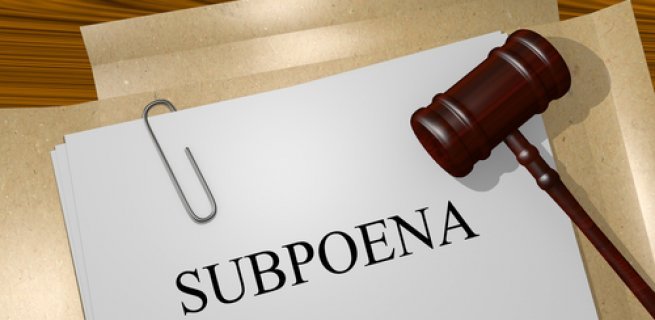It is integral to our justice system that parties be able to require the attendance of witnesses at court to answer questions.
A party, such as the defence or prosecution, will normally require the attendance of a witness by issuing them with a subpoena to ‘give evidence’ (ie testify). Failure to attend can result in a warrant being issued for the witness’s arrest and criminal sanctions, including the possibility of a prison sentence.
However, it is also recognised that there are certain situations where it may be undesirable to force a witness to testify in court, and the Evidence Act 1995 (NSW) (‘the Act’) sets out the rules in that regard.
Evidence Act
The starting point is section 12 of the Act, which says that everyone is competent to give evidence and can be forced to testify in court unless their situation is captured by one of the exceptions, which are contained in sections 13 to 19.
Section 13 – Mental, intellectual or physical disability
A person is not competent to give evidence about something if they do not have the capacity to understand a question or give an answer about it, and if that incapacity cannot be overcome.
This provision will often relate to very young children, or people with severe mental health issues.
The issue of capacity is decided by a judge in the absence of a jury in accordance with section 189(4) of the Act, and the applicable test is ‘on the balance of probabilities’; RA v Regina (2007) 175 A Crim R 221.
If a person is found to lack capacity, he or she may nevertheless be required to give ‘unsworn evidence’ if the court has informed them that:
- it is important to tell the truth,
- they may be asked questions they don’t know or can’t recall the answer to, and that they should tell the court if this occurs, and
- they may be asked questions that suggest certain statements are true or untrue, and should only agree with those they believe are true and disagree with those they believe are untrue, and should feel no pressure to agree or disagree.
In the case of SH v R [2012] NSWCCA 79, the defendant appealed against his conviction for having sexual intercourse with a child under the age of 10 years. The basis of the appeal was that the original trial judge had failed to properly inform the child complainant of the above matters before receiving unsworn evidence.
The New South Wales Court of Criminal Appeal held that this failure did indeed amount to a miscarriage of justice and ordered a retrial.
Section 14 – Utility
This section provides that a witness is not compellable to testify about a particular matter if:
- substantial cost or delay would be incurred in ensuring that the person would have the capacity to understand a question about the matter or to give an answer that can be understood to a question about the matter, and
- adequate evidence on that matter has been given, or will be able to be given, from one or more other persons or sources.
Section 15 – Sovereign and politicians
Heads of state such as the Queen, Governor General, governors of states, administrators of territories and foreign sovereigns cannot be compelled to testify.
Politicians cannot be compelled if this would prevent them from attending a sitting or meeting of parliament.
Section 16 – Judges and jurors
Judges and jurors in a hearing or trial are not compellable to give evidence in that proceeding; see Regina v Potier [2011] NSWCCA 336.
The exception is that jurors are compellable for matters affecting the conduct of the proceeding.
Section 17 – Defendants and co-accused in criminal proceedings
Defendants and co-accused in criminal proceedings cannot be forced to testify.
However, an associated defendant can be compelled to testify against another if he or she is being tried separately.
Section 18 – Family members
A defendant’s spouse, de facto partner, parent or child cannot be forced to testify for the prosecution if:
- it is likely that harm might be caused to the witness, or to the relationship between the witness and the defendant, if they testify, and
- the nature and extent of that harm outweighs the desirability of receiving the evidence.
In making that determination, the court must have regard to the following matters:
- the nature and gravity of the offence,
- the nature and likely importance of the evidence,
- whether the evidence can be obtained in another way,
- the nature of the relationship between the defendant and witness,
- whether the witness would have to disclose confidential information, and
- any other relevant matter.
The relevant time for assessing these matters is when the witness is to give evidence.
Section 19 – Exceptions to section 18
Despite section 18, family members are compellable in proceedings for the following offences under the Children and Young Persons (Care and Protection) Act 1998:
- section 222 – endangering children in employment,
- section 223 – certain employers of children to be authorised,
- section 227 – child abuse, and
- section 228 – child neglect.
Spouses are compellable in domestic violence offences; see section 279 Criminal Procedure Act.











